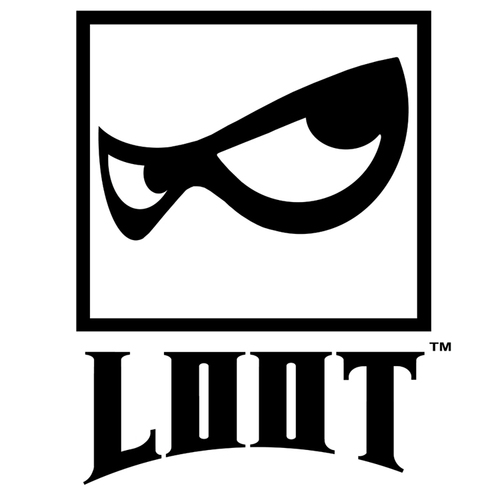
by Lidia Paulinska | Jun 25, 2015
At E3 2015 we had a chance to sit down for a 1:1 with Loot Interactive co-founder David Sterling at their first “press and partner” evening event held at the show. In a very well attended event at a local Mexican restaurant we talked to David about the Indie game marketplace and how Loot Interactive was trying to stand-out from the crowd.
Unlike most indie publishers, they are not targeting just F2P games on the mobile phone & tablet platforms. Instead they are going for the console market because the environment is more immersive, a directed action (you are choosing to play a game not killing time until a bus or train) with a bigger screens. While the games they are currently publishing are based on the Unity flow and not epic graphics crazy, the ability to build challenging stories for the game allows them to present a new spin on the discovery game genre.
The console, due to its closed operating system, known hardware configuration and now integrated connectivity allows the games to streaming based so there are options for more engaging action than a single download mobile game. As an indie publisher, they can search for games from innovative developers from different genres and bring the games together. The purpose was to help expose these interesting games and unique stories that otherwise would not be told to a large audience. It also allows them to developmentally, try different content approaches to AR and VR with products like the Sony Morpheus platform. This can bring new experiences to the user, and as an indie publisher, bring a variety of titles to the product rather than relying on just continuation of a single franchise title.
At this time, David is focusing on finding new titles, and new developers to bring into their publishing fold. Down the road, the group will be looking into implementation of the transmedia angles on the titles they produce. Being able to support other types of media – books, table games, TV, movies, etc is always important for a creative story – but for now, Loot Interactive is focusing on the console game aspects. David indicated they need to full establish themselves and get a foot hold in the market, before branching off into to many other things – that is how companies get lost in the growth cycle.

by Lidia Paulinska | Jun 24, 2015
When asking the question of what the weather will be tomorrow, we can easily find the answer paging through the morning newspaper, turning the dials on the radio or TV stations, or just by surfing on the Internet. The weather forecast is an essential piece of information which allows us to make an immediate decision, such as what kind of clothing to wear, depending on the temperature climate, in order to not get too warm or too cold. It can also let us know if our flight to San Francisco was cancelled due to extreme weather conditions. Such dependable information gives us the comfort of awareness, but our lives will not be endangered if we do not have any knowledge about it.
The situation seems completely different when inquiring about one’s health for the next day, week or month. There are three possible scenarios: we will wake up in great shape, we will wake up being sick, perhaps with a cold or flu, or we will find out our future will never be the same because we will get diagnosed with a terminal illness.
So, how can we predict one’s well-being as accurately as we can predict the weather?
The answer for this question is crucial for our human existence, so why don’t we know the answer? Presently, we do not have the answers yet, but it looks like this is going to change very soon. Temporary medicine is going in the direction of predictive and preventive.
Biotechnology is driving these changes. The widespread availability of sensors and transmitters, massive use of mobile devices, increase in sophistication of the Internet and data analytics, make them happen rapidly.
These tremendous hopes come from a discovery of human genome, that give us an unprecedented opportunity for contemplate our own biological and psychological make-ups. Thanks to rapid progress in the technology arena, the cost of genome sequencing came to the consumer world. The full genome analysis is still for many of us out of financial reach but for an affordable price it is possible to get a sample of personal characteristics and evaluation of risk to certain illnesses and their ancestries. That opens the door for personalized medicine where drugs are prescribed specifically for the patient’s biochemistry instead of blind errors.
American biologist, expert in biotechnology field, Leroy Hood, described the future of medicine as 4P: Predictive, Preventive, Personalized and Participatory. Predictive and Preventive use the genome characteristics and environmental conditions to forecast what is necessary to maintain wellness and prevent future illnesses. Personalized and Participatory because it is target certain individual who is involved in collecting and interpreting the data about his/hers health condition.
Often or non-stop monitoring the body functions and transferring this data to medical personnel can be very helpful in preventive and personalized medicine. Not that long ago, the medical patients were going through routine, basic medical tests and their data information were stored in the medical clinics until their next visit. Today digital health goes mainstream. Smartphones, our personalized computers, stores our medical data and give us the opportunities like never before. Due to many applications on its screen we can monitor our sleep pattern, measure blood pressure, evaluate the stress level or monitor taking prescribed drugs and storage all those information for easy access for a patient and medical personnel.
Today medicine changed our approach to diagnosis and cure the illnesses as well as our thinking about longevity. It hard to imagine that DNA sequencing was discover only 60 years ago.

